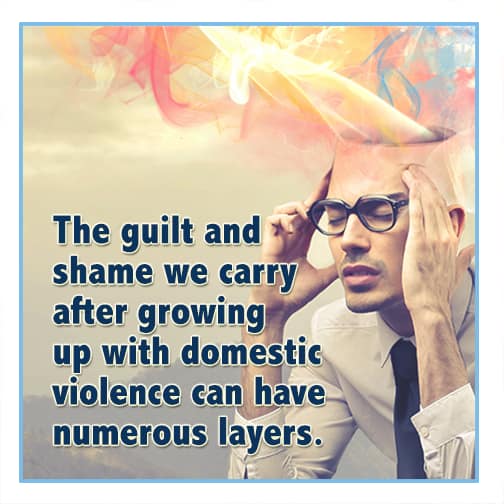You Can Heal and Thrive in Your Life No Matter What It Was Like
The guilt and shame we carry after experiencing adversities in childhood can have numerous layers. To help you begin to unravel those layers, I’d like to share with you the inspirational story of British actor Martin Rayner, which I documented in my book, INVINCIBLE. While his journey through toxic shame is extreme, his triumph is equally immense. Through Martin, I hope you will see that no matter how great your trials were as a child, you can equally rise to greatness now as an adult.
Crippled by Shame and Guilt
Born into a home plagued by violence, Martin was mentally and physically crippled by shame and guilt stemming from the poverty, chronic domestic violence, and neglect that defined his circumstances.
When I asked him to describe his childhood in post-World War II England, Martin didn’t hesitate: “Bleak.” For him, the memory of not being able to prevent the violence between his mother and his father was by far the worst.
In fact, he was so consumed by his guilt and shame that he became physically ill, spending much of his boyhood barely able to lift himself off the couch.
His parents, who were childhood sweethearts from an industrial and coal-mining region in the Midlands of England, came from a working-class background steeped in ignorance and superstition.
It was a time and place of gas lamps, horse-drawn carts, coal soot, and violence in the home that was never talked about. Ever wonder where the phrase “rule of thumb” comes from? It was an archaic British law that allowed a man to beat his wife with a stick no wider than his thumb.
Back then, what a man did in his home was nobody’s business.
His Mother Viciously Beat his Father
Except that in Martin’s house, it was the reverse: His mother viciously beat his father. As Martin remembers it, she suffered from violent mood swings, exacerbated by her menstrual cycle. As a girl, no one told her about her body and what would happen when she went through puberty, so when her period first came, she screamed uncontrollably, believing she was dying, or cursed, or both.
She never got over the trauma, and no one stepped in to help her understand. There was probably more to her upbringing that left her scarred and prone to violent outbursts, although the violence was rarely directed at her children.
Martin’s understanding of his mother’s suffering did not help curb the immense suffering her violent outbursts caused him. While he knew she had a reason to be so upset, he could not understand why he was unable to stop her outbursts or keep the violence from recurring. This caused him great pain.
Releasing his Shame and Embracing Freedom
This same awareness in adulthood, however, would eventually help Martin release his shame and embrace freedom. He would come to see that he could not make his mother feel better or end the violence in his home, because he was never the cause of her anger or pain.
If you experienced similar circumstances as a child, can you also now, as an adult, see that the reason you couldn’t stop the pain or violence was because you were never its cause? It was never your fault. You were not to blame.
I encourage you to share in the comments below how you may have experienced guilt or shame as a child, and if you now view your early years through different eyes. Do you have a different perspective now that you’re an adult?
A detailed overview of the GUILTY LIE, as well as Martin’s full story, can be found in CHAPTER 2 (“Guilt to Free) of INVINCIBLE: The 10 Lies You Learn Growing Up With Domestic Violence and the Truths to Set You Free.
Learn more about Brian F. Martin on Google Plus

